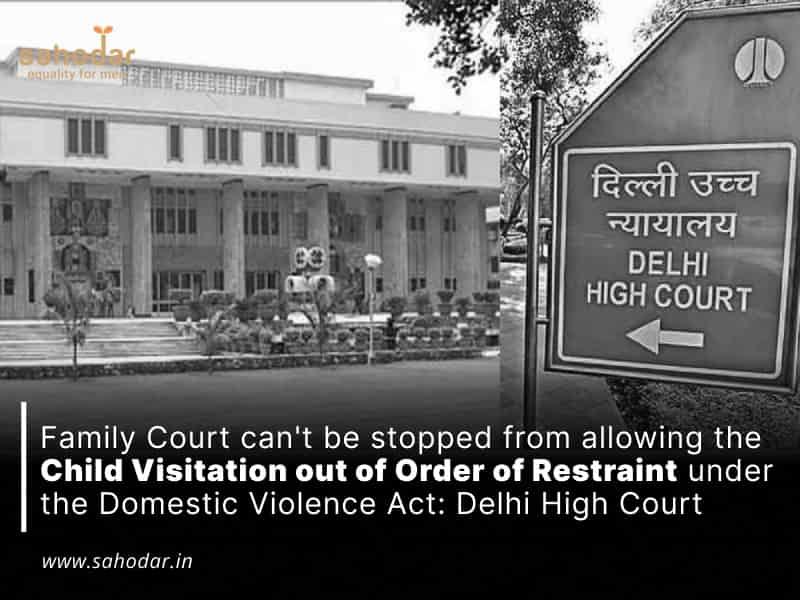According to the Delhi High Court, there must be a harmonious interpretation of the Protection of Women from Domestic Violence Act, 2005 and the Family Courts Act, 1984, as they are two statutes that can conflict with each other, to avoid any situation of inconsistency or contradiction.
Justice Yashwant Varma referred to a 2017 Supreme Court judgment, Amit Kumar and another v. Charu Makin, where it was noted that the purpose of the Family Courts Act, 1984, was to establish special courts for dealing with matters specified in Section 7 of the Act.
In contrast, the Protection of Women from Domestic Violence Act, 2005, was enacted with the objective of safeguarding women from being victims of domestic violence and preventing such incidents from occurring in society.
A wife filed a plea challenging a Family Judge’s order which granted her husband supervised visitation rights within the court complex. The wife argued that the order contradicted the restraint order imposed by the court hearing her application under the Domestic Violence Act, 2005.
The Court observed that the Domestic Violence Act order was based on the wife’s allegations against her husband and did not contain any accusations of cruelty or physical abuse towards the children.
Taking into account the allegations made by the petitioner, the Court acknowledged that the respondent was prohibited from contacting the children and the complainant in any manner as per the order passed in the proceedings under the Protection of Women from Domestic Violence Act. The order also specified that the respondent should not disturb the custody of the children.
However, the Court clarified that this order did not affect the authority and jurisdiction of the Family Court to decide on granting interim visitation rights to the father of the minor child.
The Court emphasized that the provisions of the Protection of Women from Domestic Violence Act did not strip the Family Judge of the authority to make arrangements for visitation rights as outlined in the challenged order. The Court stressed that the two conflicting statutes must be interpreted in a manner that prevents inconsistency and conflict.
Consequently, the plea was rejected by the Court.
Source: https://www.livelaw.in/news-updates/delhi-high-court-domestic-violence-act-family-courts-act-harmonious-construction-197154

